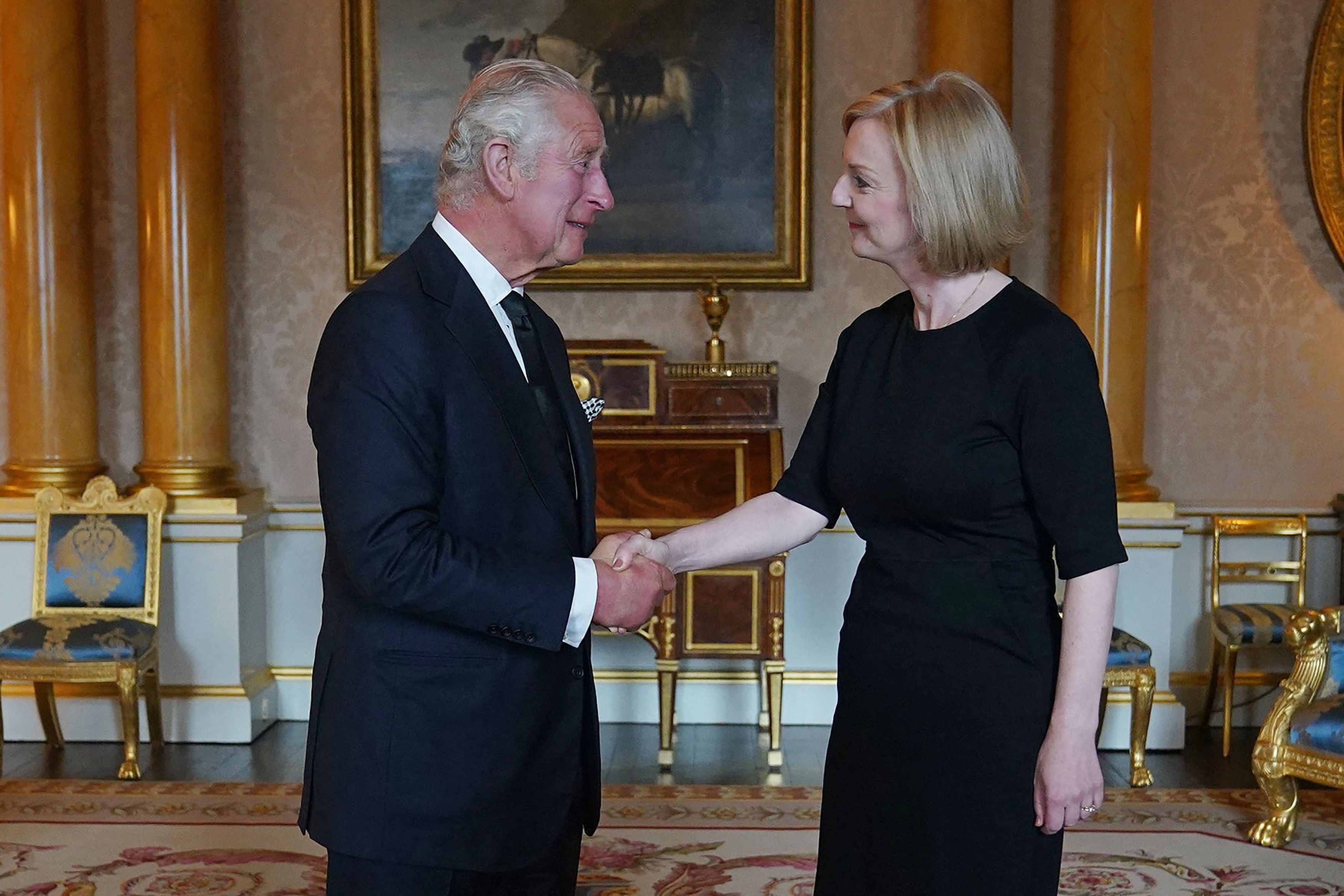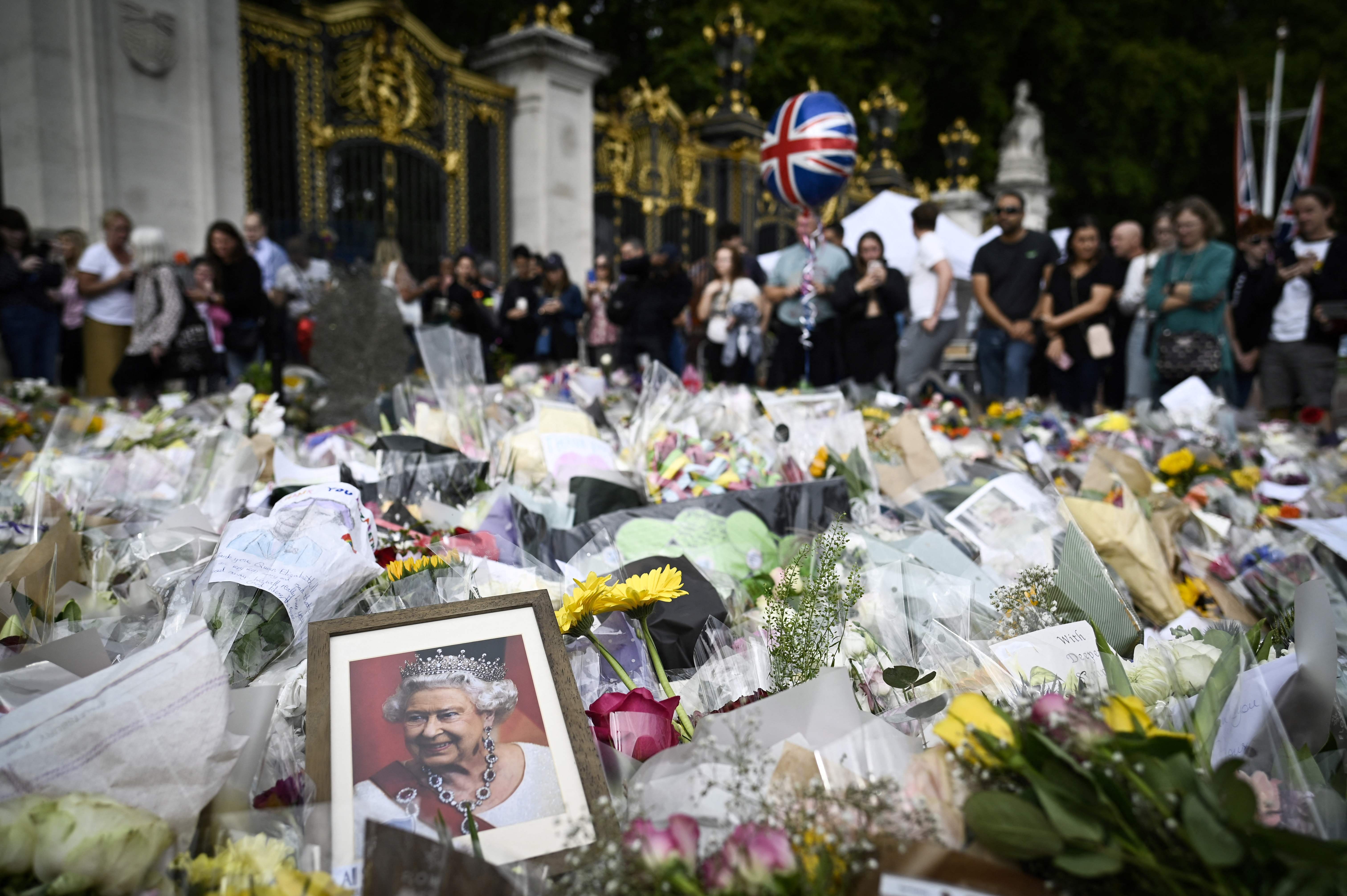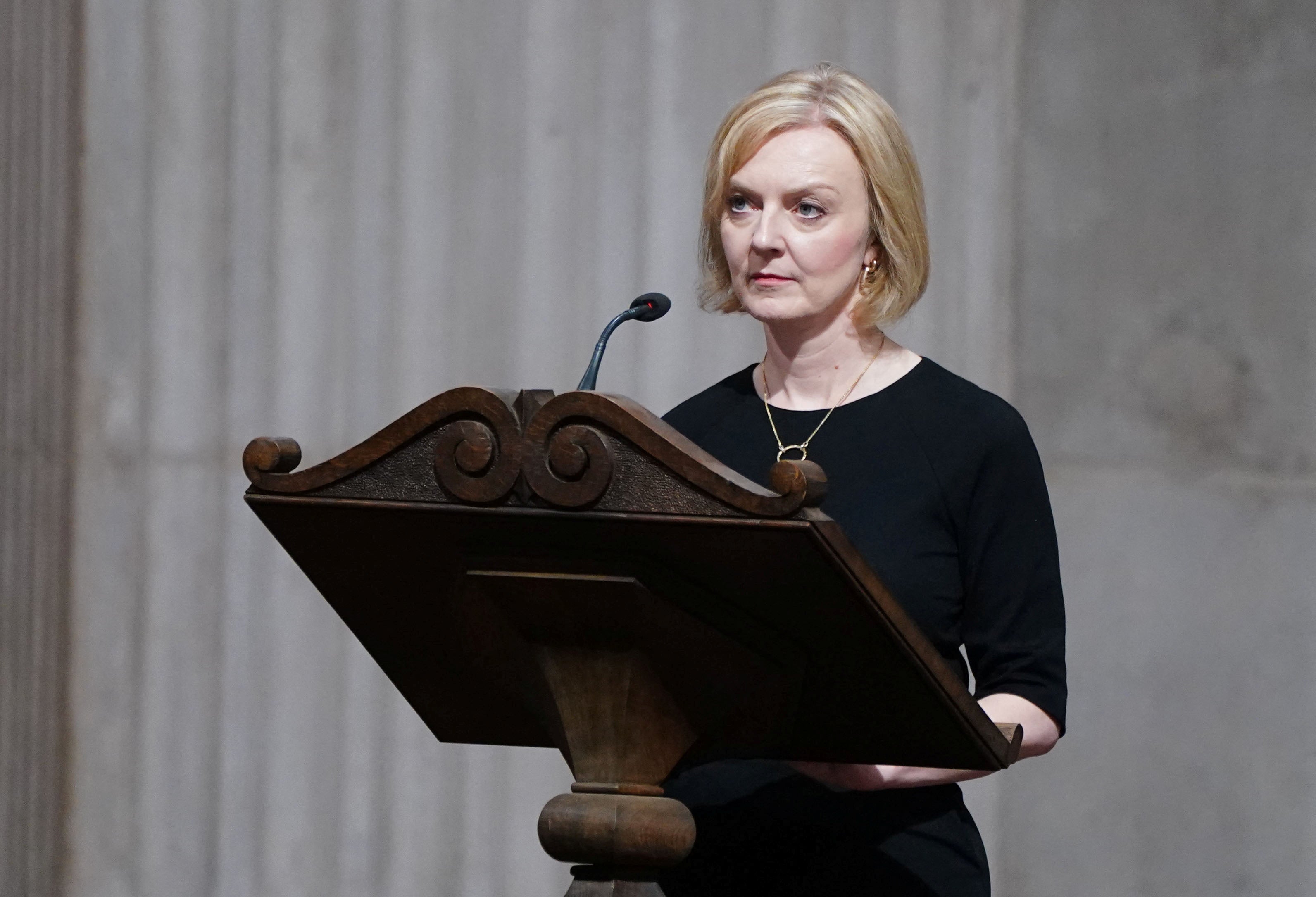The week that made Britain unrecognisable
Liz Truss is only on the third day of her reign as prime minister. She’s already done more than some of Queen Elizabeth II’s 14 others, writes Tom Peck


Your support helps us to tell the story
From reproductive rights to climate change to Big Tech, The Independent is on the ground when the story is developing. Whether it's investigating the financials of Elon Musk's pro-Trump PAC or producing our latest documentary, 'The A Word', which shines a light on the American women fighting for reproductive rights, we know how important it is to parse out the facts from the messaging.
At such a critical moment in US history, we need reporters on the ground. Your donation allows us to keep sending journalists to speak to both sides of the story.
The Independent is trusted by Americans across the entire political spectrum. And unlike many other quality news outlets, we choose not to lock Americans out of our reporting and analysis with paywalls. We believe quality journalism should be available to everyone, paid for by those who can afford it.
Your support makes all the difference.“Bye bye Bo-” There was already a sense of history in the air when, at 13:02 on Monday 5 September, the music finally stopped.
In the streets of Westminster, a protester called Steve Bray has been playing his 20-second long Bay City Rollers-inspired jingle, “Bye Bye Boris”, on loudspeaker and on repeat for three full years. And there he was, at very long last, finally pressing the stop button.
Arguably, we should have realised, right then, that this would be an even more historic week than was already taking shape.
We were outside the Queen Elizabeth II Conference Centre. I, as it happens, had travelled there on the Elizabeth line, via the Pret at Stratford station, where a piece of paper with Queen Elizabeth II’s face on had been exchanged for a ham and cheese croissant. Afterwards, we walked back toward Big Ben, or to give it its proper name, the Elizabeth Tower.
There’s always a strange feeling when a prime minister changes, even when it comes around as frequently as is currently the case. There’s been a lot of upheaval of late. Already, many people have spoken and written of how, for as long as anyone can remember, there has been one constant, reassuring human backdrop to the life of the nation.
“In times when nothing stood / But worsened, or grew strange / There was one constant good: / She did not change,” wrote Philip Larkin, words that have been quoted many times in the last 72 hours. One wonders what Larkin might have made of those words being repeated again this week, their sentiment unchanged, given that he wrote them fully 45 years ago.
In a Newsnight documentary, an ageing Mick Jagger was once asked: “None of you are getting any younger. How long do you think you can keep this up for?” “Oh a while yet, I reckon,” he replied. It was broadcast in 1982. Hanging around forever is not as uncool as you might think.
The now overfamiliar rituals of a change in personnel at 10 Downing Street took on a slight twist this time, the cars to the palace replaced by private jets to Balmoral, which took far longer to land than had been anticipated, and set in motion a delay that would cause Liz Truss to sweep into that famous street in the middle of a summer-ending downpour.
The customary photo was released, of the new prime minister and the same old Queen, shaking hands and smiling. This photo, naturally, has already been analysed more than all the others ever shall be. That single still picture would be her final semi-public outing.

Around Westminster, it was stated time and time again that Prime Minister Truss would be getting off to a ferocious start. Her “in-tray” would be sufficient to terrify even the most experienced of her predecessors. It was also commonly agreed that the biggest moment of her premiership would happen on its second day. That was when she had to stand up in the House of Commons and set out exactly what she was going to do to avert an economic catastrophe on a scale arguably not seen in this country in a hundred years. With energy bills forecast to rise from £2,000 a year to £8,000, a very large percentage of the population had spent the summer staring down the barrel of destitution in a state of abject terror, while the Tory party avoided the question and argued with itself. An utter shambles.
One wonders exactly how she’ll feel about this seismic moment being over before it began. She’d set out details of a £150bn direct state intervention. Queen Elizabeth II had 15 prime ministers. Many were embroiled in wars and scandals and widespread social unrest. But precious few of them ever had to pull the trigger on anything quite this big.
In seven full decades – longer than that, in fact – under the most piercing public spotlight, she scarcely uttered an opinion on anything at all
The finer points of it are a matter that Westminster will have to come back to. The immense magnitude of the moment was kicked out from under it when Nadhim Zahawi began whispering, first to the prime minister and then to others on the front bench, seemingly sending shivers of pure terror into all who heard them.
It also became very much a matter of when, not if, the hours of absurd speculation about the colour of the ties of various BBC news readers would give way to certainty. For the second time in two days, private jets were scrambled to Aberdeen airport.
People of every political hue, of every nationality and every background all seemed to love the Queen, and all for the very same reason. Because she very deliberately dealt only in the kinder, gentler side of life – at least publicly. No controversial words ever left her. In seven full decades – longer than that, in fact – under the most piercing public spotlight, she scarcely uttered an opinion on anything at all.
Whether that is a virtuous way to live one’s life is a matter of personal taste, but it does not make life easy for those who must fill three, four, five, six hours and counting of live television, about a person who has very deliberately furnished them with nothing of any interest to say.
Huw Edwards had been saying nothing to Nicholas Witchell and Nicholas Witchell had been saying nothing back for 300 unforgiving minutes when the former was finally given clearance to announce what he already knew. “Queen Elizabeth II has died.”
The note was brought out to the palace gates. A lectern was brought out from No 10 – again – and there was Liz Truss – again – 72 hours into the job and somehow having to lead the entire world in grief for arguably its most cherished human being.
For the millions of people who can’t possibly not have known that this moment was coming, who possibly daydreamed about it from time to time but still couldn’t quite picture it, the unknown aspects of the ritual have been peculiarly reassuring. Everything really does just carry on.

And for those of us who are still not fully convinced by the idea of monarchy (and there are a few of us, at least 95 per cent of the world’s population, for a start), there have been a few more instances to ruminate upon. One might be how easy it is now to see quite what not just the Queen but the monarchy itself stands for. It places admirable human qualities far above any kind of exclusionary patriotism, or nationalism.
When the House of Commons met to pay its tributes, it is customary on such occasions that ex-prime ministers, of whom there are now a few, are high up the pecking order.
Generally speaking, lefties think that Keir Starmer gave the best speech. Tories think Boris Johnson and Theresa May were both brilliant. These are the dreary but inevitable divides that will never go away. And these days, there is a lot less to unite them than anyone can remember. The Queen certainly did it, and on the evidence of the last few days, the King will too, and that is no bad thing.
When the flag above Buckingham Palace made its way to half-mast, the passing tourists decided to stick around to witness a moment of history
No one seems to have compiled an exhaustive list of everything that will have to change. The coins, the banknotes, the national anthem, the names of courts and the people who prosecute within them (the shift in job title for senior barristers – from QC to KC or vice versa – has happened precisely twice in 300 years).
Ubiquity, in the end, gets taken for granted. To start over again will be no bad thing. There will be plenty of reminders, even for the most cynical, that this peculiar way of life has much to commend it. Whatever King Charles III gets up to, one doubts he’ll be quite rightly hounded out of his office by a man with a ghetto blaster and a very, very repetitive jingle. An anti-democratic aberration? Maybe. But given the chance, most of us would vote for it.
When the flag above Buckingham Palace made its way to half-mast, the passing tourists decided to stick around to witness a moment of history. There wasn’t anything to actually witness but nevertheless, they were there, and that counts for something.
The royal easel is only put in place for the glad tidings, not sad ones – births and marriages, not deaths. The news emerged in the now customary way, via smartphones, and it made its breathless way around the gathering crowds. A few solitary voices shouted “God Save The King!”
They watched as the prime minister strode up to the Downing Street lectern for the second time in as many days. PM Liz is only on the third day of her reign. She’s already done more than some of Queen Elizabeth II’s 14 others.
“Queen Elizabeth II was the rock on which modern Britain was built,” she said. And she was right to do so. That general sense of an earthquake going on underneath the country’s feet has nothing to do with her having just lifted the ban on fracking. At least not yet.

The first sense that something was awry had come in the House of Commons, six hours before. Ms Truss was in the middle of the defining moment of her premiership when another one came along at once. The trifling matter of a £150bn intervention to directly pay everyone’s gas bills for two full years was forgotten within about five minutes of it being announced, when Nadhim Zahawi started passing around a note that instantly drained the blood from the face of all who were shown it. There was another note doing the rounds on the Labour benches and within seconds Keir Starmer and Angela Rayner had scarpered from the chamber in the middle of quite possibly the single most important moment of either of their careers.
We still don’t know exactly what the note said, but we do know that within minutes, Buckingham Palace was doing what it never does and issuing a grave statement on the health of Her Majesty. She was, it said, “under medical supervision”. The need to issue a statement saying absolutely nothing of course says absolutely everything.
For the second time in two days, websites for flight geeks strained under the weight of people tracking the journeys of small private jets from London to Aberdeen, this one carrying not the 14th or 15th prime ministers of the Queen’s 70-year reign, but seven close members of her family, who would land and then pile into Land Rovers, one driven by Prince William, and drive off to Balmoral, them too, wearing the same ashen-faced look.
Well, similar, but not the same. The pictures of Prince William behind the wheel of the car are not pictures of a man taken aback by the enormity of events, but rather by the enormity of private grief.
To keep up to speed with all the latest opinions and comment, sign up to our free weekly Voices Dispatches newsletter by clicking here
Twenty-one years ago, Her Majesty the Queen sent a note to be read out at a church service for British victims of the 9/11 terrorist attacks. It simply said: “Grief is the price we pay for love.” They are the only words I can ever recall hearing that are of any actual comfort to the grieving. Most sentiments that arrive in cards at such times are of no use at all. That short sentence is as beautiful as it is profound.
Of course, a nation doesn’t really grieve for a passing monarch of 96 years of age in the way her loved ones do, but it is a profound jolt to the senses. It will take a very long time for it to stop sounding strange when the news readers tell us what “the King” has been up to. It will not be long before the cashpoint whirrs and a different face comes sputtering out. That has never happened before.
National sentiments have changed a lot in 70 years. Deference is very passé these days. But even among the most fervent republicans, sentiments about Queen Elizabeth II had become admirably cloudy. What she was most certainly given by birthright she also most certainly spent seven full decades doing her bit to earn. The Queen’s immense international respect had nothing to do with obliging deference – it was specifically for who she was.
And in that sense, she will be an impossible act to follow. This seemingly unending age of upheaval has lost its last vestige of continuity.



Join our commenting forum
Join thought-provoking conversations, follow other Independent readers and see their replies
Comments